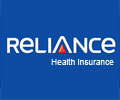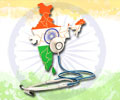CGHS – For Serving Government Employees & Pensioners
Delegation of Powers under CGHS relating to referral system, Permission cases and Ex Post-Facto Approval
(A) REFERRAL SYSTEM
| 1. Procedures/investigations for which there is no prescribed CGHS rate for CGHS recognized private hospitals/diagnostic center. | Permission for tests/procedures, the estimates of which not exceeding more than Rs. 20,000/- may be granted by HOD (Head of the Department), for Serving employees and by Head of CGHS covered cities for Pensioners, provided that such tests/procedures have been recommended by Government Specialist. Reimbursement may be limited to AIIMS rate, in the case of Delhi and outside Delhi. In case rates have not been fixed by AIIMS for any particular procedure/investigation/test, reimbursement may be made as per the actuals. |
| 2. In case of medical emergency, beneficiary may go directly to a private/Government referral hospital recognized under CGHS and thereafter submit a Medical Reimbursement Claim after discharge from the hospital. | Powers are delegated to the Heads of the CGHS organizations in various CGHS covered cities, in respect of both-pensioners and serving employees, for deciding which cases fall under the “emergency” category. This is done after analyzing the merits of each medical case individually. |
| 3. In Pregnancy Cases. | Once the pregnancy is diagnosed/confirmed by the Government/CGHS doctors including the Medical Officer working at the dispensary level, the Head of the Department of concerned Department/Ministry may permit admission for confinement purpose in the private hospitals recognized under CGHS. |
| 4. In spite of the medical facility being available in the city, a CGHS beneficiary, still opts or chooses to get treatment in CGHS recognized hospital in another city. | The powers for granting such permissions are delegated to the Heads of CGHS organizations in various CGHS covered cities, both in respect of pensioners and serving employees. For availing medical/healthcare facilities in other cities, TA/DA allowances are not given to such CGHS beneficiaries. |
| 5. In case of pensioners, if permission is granted for medical treatment in another city for undergoing such procedures/tests advised by the Government/CGHS medical specialists provided if such medical facilities are not available in the same city of residence. | Permission may be granted to pensioner beneficiaries by Head of the CGHS Organization in the various CGSH covered cities on the basis of specific advice from treating Government medical specialist. TA (Travel Allowance) may be limited to the Referral Hospitals available in the nearest city by the shortest route. In case of deviation from the above rule, prior permission of Director, CGHS, needs to be obtained. |
| 6. In case of emergency, in respect of pensioners/serving employees. | Since it is not always possible to obtain prior permission in medical emergencies, treatment taken by CGHS beneficiaries in case of an emergency will be considered on merit based on individual study pertaining to such cases. This is applicable even if the treatment is taken from a non-recognized private hospital. For granting eg. Post- facto approval in emergency cases, for both-serving Government officials or pensioner beneficiaries, the power is delegated to the Head of the concerned CGHS covered city. |
| 7. Treatment in a private hospital recognized under CGHS | Referrals may be made based on the recommendation regarding the treatment procedure by the concerned Government medical specialist for indoor treatment (IPD) in private hospitals, recognized under CGHS. This is usually done by the Head of CGHS covered city in respect of pensioners and by the Head of the Ministry/Department/Office in respect of serving government employees. The permission for follow-up treatment pertaining to CGHS beneficiary may be given for a period of six months from the date of discharge from the hospital. This permission is granted by the Head of CGHS covered city in respect of pensioners and by the Head of the Ministry/Department/Office in respect of serving employees. |
(B) PERMISSION CASES
| 1. Cases where permission is to be granted for products/services with ceiling rates. | When medical treatment is taken with prior permission and where the ceiling rates have been fixed for purchase of implants such as pacemakers, stents, total joint replacement, etc. the procedure of calling 3 quotations is not required. The Head of the CGHS organization of the concerned CGHS covered city may grant permission in such cases. |
| 2. Permission for items for which the Standing Committees exist and the Standing Committee has recommended the case. | Permission may be given by the Ministry of Health and Family Welfare (MOHFW) for items that have been notified by the CGHS. |
| 3. Supply of Oxygen Cylinder, Filter, Infusion pump, etc. | Permission may be given by the Ministry of Health and Family Welfare (MOHFW) based on the recommendations of the Standing Committee for items that have been notified by the CGHS. |
| 4. Air travel | Permission may be given by the Ministry of Health and Family Welfare (MOHFW) based on the recommendations of Director, CGHS. |
| 5. Permission for highly expensive procedures like BMT (Bone Marrow Transplant), Cardiac Defibrillator, Carotid Stents, Total Hip Replacement, etc. as per Government ceiling rates, as the costs involved are very high or where there is no policy decision has been taken so far. | For highly expensive procedures like BMT, Cardiac, Defibrillator, Carotid stenting, etc. Ministry of Health and Family Welfare (MOHFW) notifies the list of equipments or instruments or implants for domiciliary use with specific ceiling rates. Hence, permission for any instrument or equipment or implant outside the notified list will be dealt by the Ministry of Health and Family Welfare (MOHFW) on a case-to-case basis in consultation with Finance Division, CGHS. |
(C) EX POST FACTO APPROVAL
| 1. Treatment taken without recommendation of CGHS/Government specialist, but with permission of CMO In-charge of CGHS dispensary in a recognized private hospital within approved ceiling rates. | Powers are delegated to the Heads of CGHS organizations in the CGHS covered cities, both-in respect of pensioners and serving government employees to decide such type of cases. |
| 2. Treatment taken in private hospitals recognized under CGHS without prior permission. | Powers are delegated to the Heads of CGHS organization in the CGHS covered cities, both-in respect of pensioners and serving employees to decide such type of cases. |
| 3. Emergency cases within the approved ceiling rates in respect of treatment taken in private hospitals recognized under CGHS. | Powers are delegated to the Heads of CGHS organization in the CGHS covered cities, both-in respect of pensioners and serving employees to decide such type of cases. |
| 4. Emergency cases within ceiling approved rate in respect of treatment taken in private unrecognized hospital. | Powers are delegated to the Heads of CGHS organization in the CGHS covered cities, both-in respect of pensioners and serving employees to decide such type of cases. |
| 5. Cases where prior permission for treatment in CGHS recognized Government referral hospital was granted for a particular surgical procedure, but at the time of actual operation, some device/artificial appliance/additional treatment/procedure/diagnostic procedure has been utilized or undertaken for which no prior permission was taken. | Powers are delegated to the Heads of CGHS organization in the CGHS covered cities, both-in respect of pensioners and serving employees to decide such type of cases. |
| 6. Ex Post-Facto permission for treatment in Government Referral Hospitals like AIIMS PGI Chandigarh, etc. | For serving employees:Head of the department (HOD) of the concerned Ministry/Department/Office may decide such type of cases. For pensioners:Head of the CGHS organization of the concerned CGHS covered city may take an appropriate decision pertaining to such type of cases. |
| 7. Emergency Treatment in private hospitals recognized under CGHS and approval to be given as per approved rates for approved procedures/appliances/devises. | Powers are delegated to the Heads of CGHS organizations in the CGHS covered cities, both-in respect of pensioners and serving employees to decide such type of cases. |
| 8. Treatment availed or taken under emergency, but approval yet to be granted above the approved rates. | Ministry of Health and Family Welfare (MOHFW) may decide such type of cases in special circumstances, depending upon the merits of each case-study. |
| 9. Relaxation of CGHS Rules. | Ministry of Health and Family Welfare (MOHFW) will decide such type of cases. |
| 10. Air travel permission/Ex post-facto approval for air travel undertaken for medical treatment. | Ministry of Health and Family Welfare (MOHFW) will decide such type of cases. |
| 11. Reimbursement of treatment or surgical procedure or tests, for which there is no prescribed rates under CGHS. | Powers are delegated to the Heads of CGHS organizations in the respective CGHS covered cities, both-in respect of pensioners and serving employees. In such cases, however, reimbursement may be made as per AIIMS rate or as per the Actual, whichever may be less. In case there is no AIIMS rate prescribed for a particular medical procedure, then the reimbursement may be made as per the Actual. |
| 12. Monetary limit to issue sanction for settlement of individual Medical Reimbursement Claims or to accord permission or grant of medical advance. | Head of the CGHS organization of the concerned city covered under CGHS Act, in respect of Pensioners and Head of the Ministry/Department/Office in respect of serving Government Employees, where, the monetary limits for issuing sanction will be as under : - (a) Rs. 2 Lakhs: In case of serving employees/Beneficiaries By the Head of Ministry/Department/Office. (b) Rs. 2 Lakhs: (In case of Pensioner/CGHS Beneficiaries) By the Head of the CGHS covered city. |
The above orders were issued with the approval of Secretary (Health) and concurrences of JS & FA vide Dy. No. 1766/99-JS & FA, dated 23/3/1999.




![An Introduction - Indian General [Non-Life] Insurance Companies An Introduction - Indian General [Non-Life] Insurance Companies](https://www.medindia.net/images/patientinfo/120x100/health-insurance21.jpg)

















